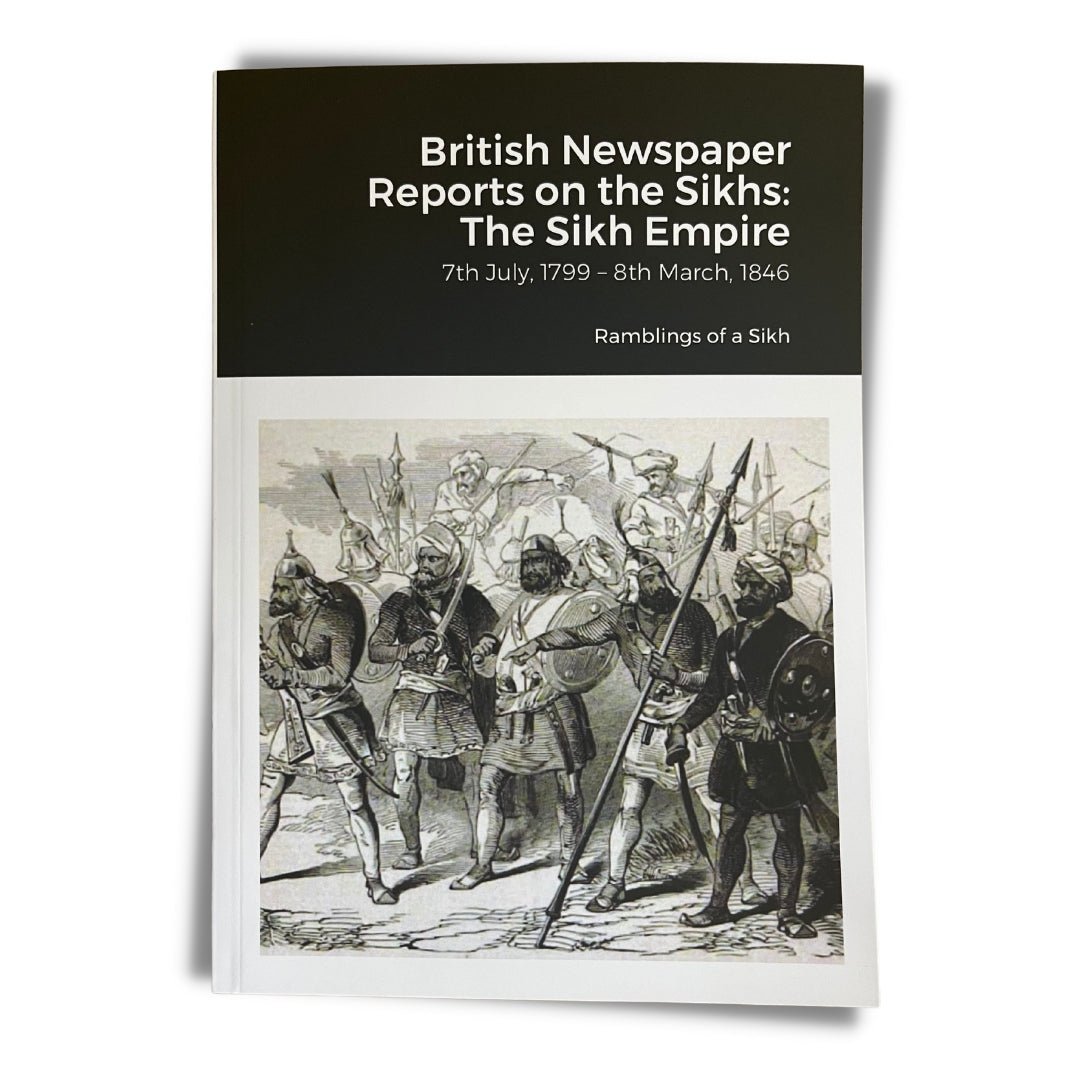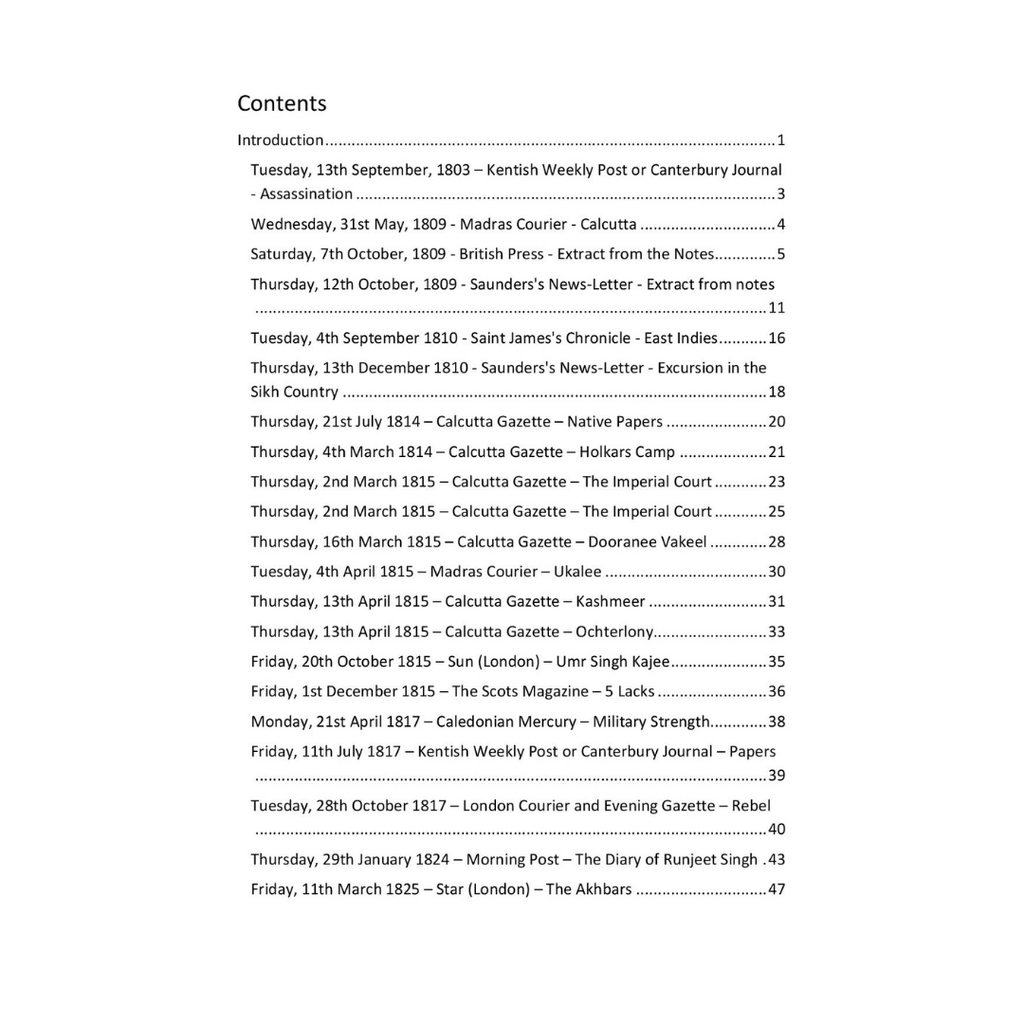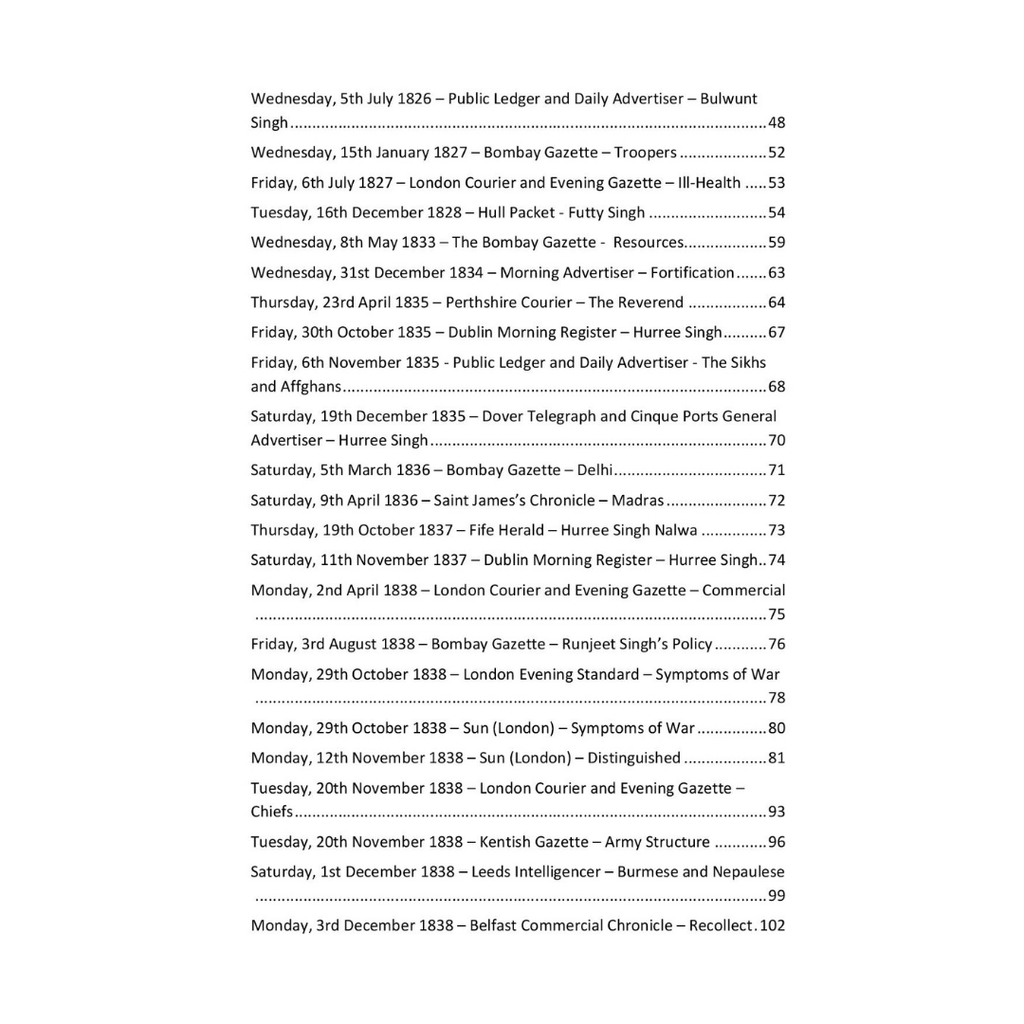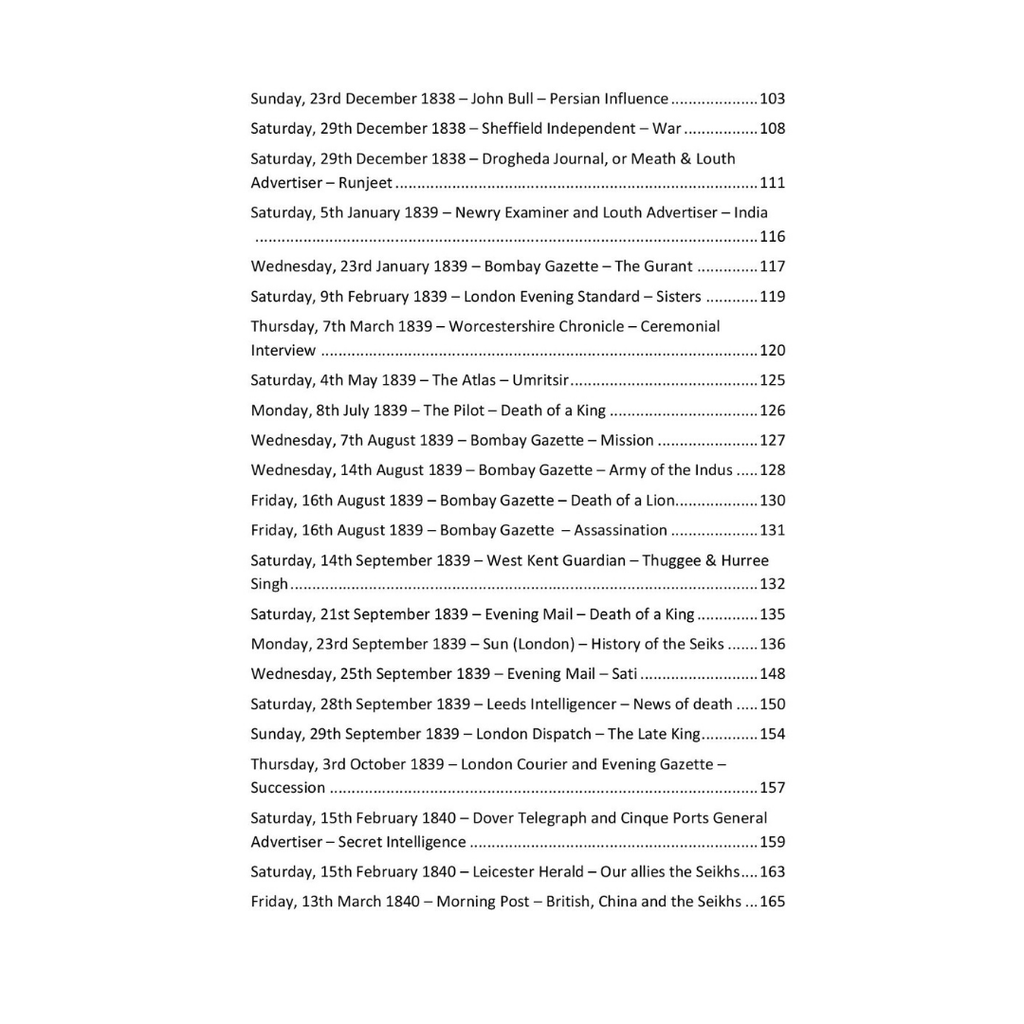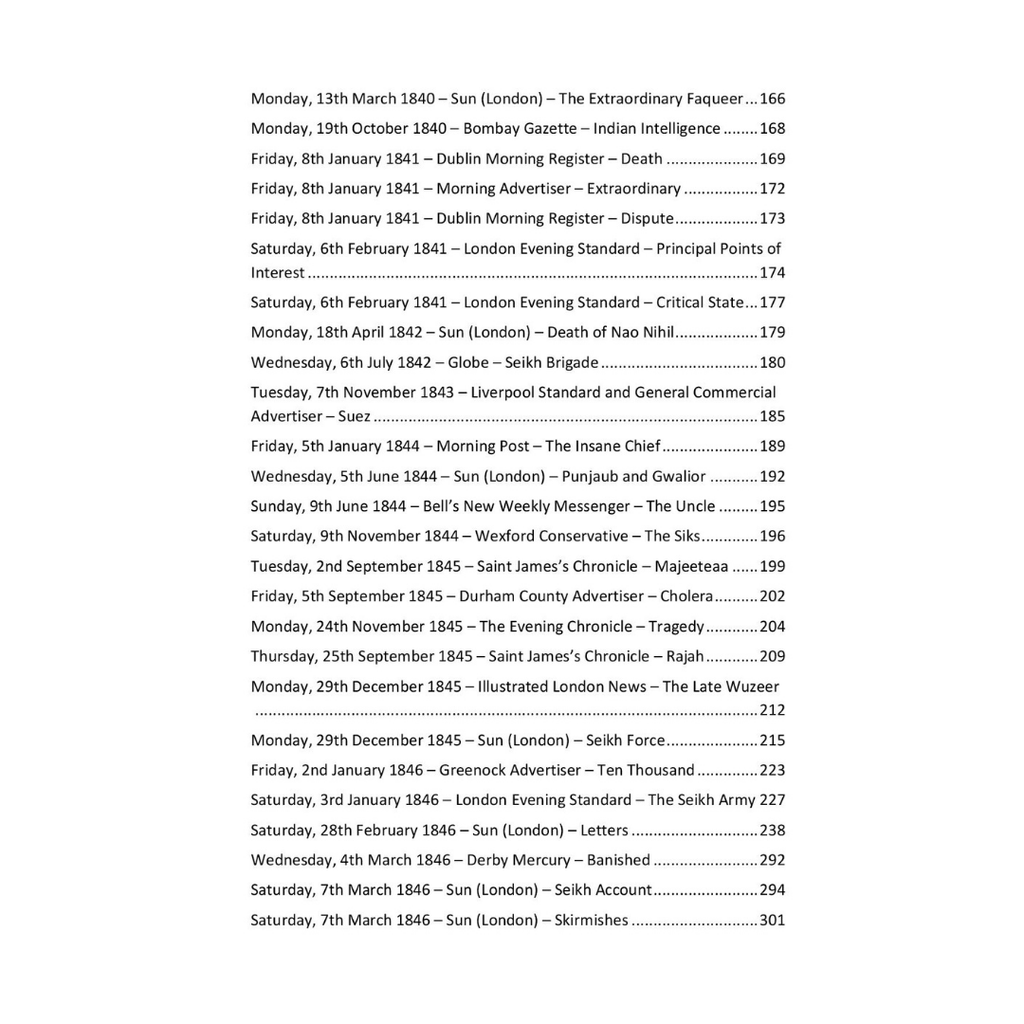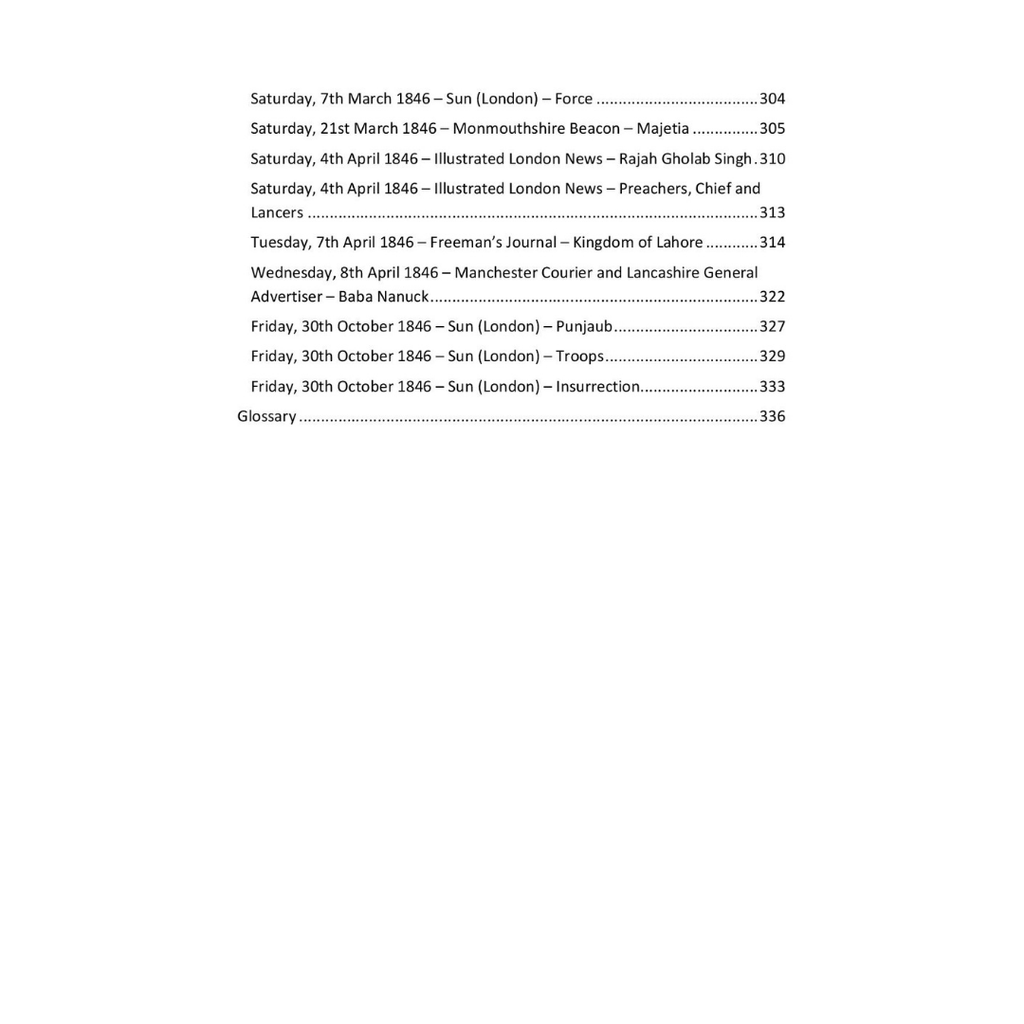26 in stock
British Newspaper Reports on the Sikhs: The Sikh Empire (7th July, 1799 – 8th March, 1846)
British Newspaper Reports on the Sikhs: The Sikh Empire (7th July, 1799 – 8th March, 1846)
Couldn't load pickup availability
Synopsis
Synopsis
This 341 page book is a compilation of over one hundred British newspaper articles regarding the Sikhs spanning over fourty-six years from 1799 until 1846. In summary, it provides a brilliantly broad view of British interactions and observations of the Punjab and the Sikhs.
To provide a rather brief and limited, chronological overview, we start in 1803, and in this first decade, we have six articles concerned with the inner machinations and politics of Patiala, letters regarding the Sikhs, the Sikh forces and the Punjaub from individuals associated with the military.
We then have thirteen articles which guide us through the 1810s mainly focused on the Maratha, Holkar dynasty, the British Colonel Dr. Ochterlony and the Durrani dynasty. Alongside a quantification of military forces in India, mention of Bhola Singh Akali and several references to Amritsar.
Six articles take us through the 1820s, focused on Maharaja Runjeet Singh, including a European doctor’s visit to the Maharaja. Balwant Singh, the infant Raja of the Princely state of Bharatpur and Raja Fatheh Singh Ahluwalia of the Kapurthala Kingdom.
We then move onto thirty-nine articles which take us through the 1830s, covering the resources for commerce in the dominions of Maharaja Runjeet Singh, Hari Singh Nalwa, Reverend Joseph Wolff, the Sikhs and the Afghans, Dost Mohammed Khan and British insight into the run up to warfare with the Sikhs. The death of Runjeet Singh, sati and the succession crisis that ensued.
The 1840s are covered, in this collection, by thirty-eight further articles, covering intelligence from British military personnel, brief historical sketches of the Sikhs, the murder, deaths and machinations of the Sukerchakia household, the Majetia brothers and, once again, observations on the movements and workings of the Sikh army.
The attention to the Sikh army is of no surprise the First Anglo-Sikh war was very much at the forefront of everyone’s concerns. (Mudki - 18th December 1845, Ferozeshah - 21st/22nd December 1845, Baddowal - 21st January 1846, Aliwal - 28th January 1846 and Sobraon - 10th February 1846).
To help understand this time there are a handful of newspaper extracts post 8th March 1846 that helps to set the scene for the next compilation of British newspaper reports - this time looking at the inter-Anglo-Sikh war period and the Second Anglo-Sikh War (18 April 1848 – 30 March 1849).
Those mentioned include: Guru Nanak Dev Ji, Guru Gobind Singh Ji, Guru Granth Sahib Ji and Sri Dasam Granth Sahib Ji. Maharaja Runjeet Singh, some of his wives’, Daya Kaur, Roop Kaur and Mehtab Kaur, along with his mother-in-law, Sada Kaur, and his wife, Jind Kaur. In addition, Tej Singh, Lall Singh, Gholab Singh, Nau Nihal Singh, Hari Singh Nalwa, Akali Phoola Singh, Bhoola Singh Akali, Juwahir Singh, Dhuleep Singh, Peshora Singh, Chittur Singh Attareewallah, Ranjodh Singh Majithia, Lehna Singh Majithia, Fatheh Singh Ahluwalia, Shah Zemaun, Shooja-ool-Moolk, Futteh Khan, Dr Ochterlony, General Ventura, Lord Auckland, Captain Burnes, Henry Hardinge, Colonel Macnaghten and many, many more.
It is a treasure trove of information, from the sketches of the Sikhs, descriptions of the local people, overviews of the landscape or the cities through which the observer had travelled, as well as the bias and views of the writer.
Edition 2 conforms to: Print Book: Digest (5.5 x 8.5 in / 140 x 216 mm), Premium Black & White, 60# White, Paperback, Matte Cover. The spelling mistakes & urls spotted in edition one have been removed.
Genre
Genre
- Sikh History
- Sikh Misals
- Sikh Empire
Language
Language
ENG- English
Cover Type
Cover Type
- Paperback
